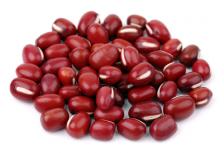4 Surprising Benefits of Phytic Acid
Phytic acid is often referred to as an “anti-nutrient” because it can block the absorption of minerals from foods But phytic acid also has many positive effects on health. Nutrition Diva weighs the pros and cons.

I’ve written elsewhere about phytic acid’s positive effect on bone density and it’s role in preventing and fighting cancer. Here are 4 more surprising ways in which phytates benefit your health:
-
Diabetes Prevention. Phytic from dietary sources reduces the digestion of starch and the absorption of sugars from food, which helps modulate blood sugar levels.
-
Heart Disease Prevention. Phytic acid also affects the digestion of fats and the formation of cholesterol, and has a beneficial effect on risk factors for cardiovascular disease.
-
Kidney Stone Prevention. By binding to calcium, phytic acid reduces the risk of painful kidney stones.
-
Removal of Toxic Metals. Phytic acid can also attach to lead and other toxic minerals and escort them safely out of the body.
In my opinion, concerns about phytic acid and mineral absorption have been blown way out of proportion. As long as you are eating a balanced diet that includes a variety of foods, the phytic acid in beans, grains, nuts, and seeds, is unlikely to cause mineral deficiencies. For most people, the potential benefits of consuming foods rich in phytic acid probably outweigh any potential harm.
Reference
Schlemmer U, Frølich W, et al. Phytate in foods and significance for humans: food sources, intake, processing, bioavailability, protective role and analysis. Mol Nutr Food Res. 2009 Sep;53 Suppl 2:S330-75. Link to Abstract

